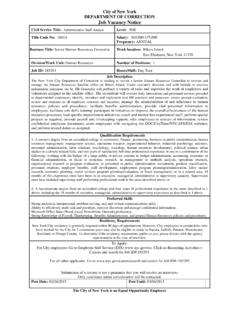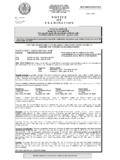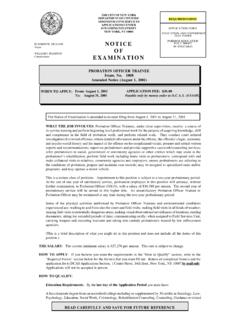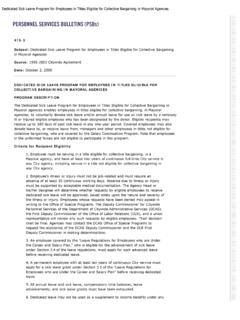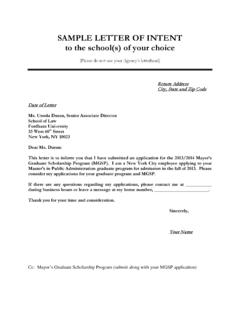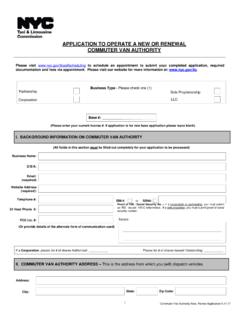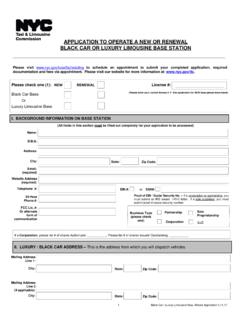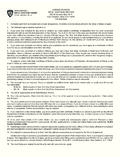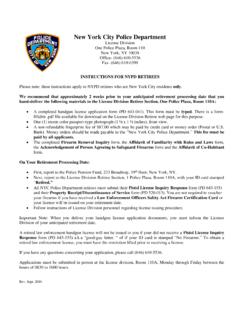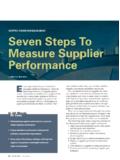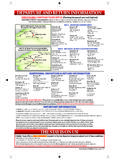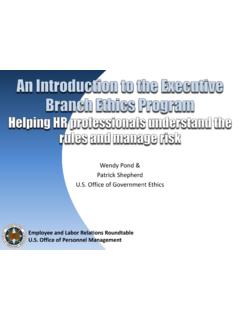Transcription of The New York Non-Profit Revitalization Act of …
1 THE FOUNDATION CENTER 79 Fifth Avenue, NY, NY 10003 UNDERSTANDING THE NONPROFIT Revitalization ACT APRIL 9, 2014 The New york Non-Profit Revitalization Act of 2013: Ten Things That New york Nonprofits Should Know DAVID G. SAMUELS, ESQ. (212) 692-5981 DUVAL & STACHENFELD LLP 555 MADISON AVENUE, SIXTH FLOOR NEW york , NY 10022 (212) 692-5981 The New york Non-Profit Revitalization Act of 2013: Ten Things That New york Nonprofits Should Know The Non-Profit Revitalization Act of 2013 (the Act ) was signed into law by Governor Andrew M.
2 Cuomo on December 18, 2013 after unanimous passage by the New york State Senate and Assembly on June 21, 2013. The Act, which was introduced at the request of Attorney General Eric T. Schneiderman, generally takes effect on July 1, 2014. The following is a summary of key provisions of this new and important law: 1. Non-Profit corporations and charitable trusts with 20 or more employees and annual revenue of over $1 million must adopt a whistleblower policy to protect persons who report suspected improper conduct.
3 This requirement, which appears to go well beyond the whistleblower protections afforded by current New york law, provides protection for directors, officers, employees, or volunteers who in good faith report any action or suspected action that is illegal, fraudulent, or in violation of company policy. Intimidation, harassment, discrimination, or retaliation (including terminating or disciplining employees) is forbidden. It is not inconsistent with the Act to infer that, if a purported whistleblower is not acting in good faith, adverse employment consequences might be appropriate.
4 The audit committee (if there is one) or the full board must oversee implementation of and compliance with the whistleblower policy. 2. Every Non-Profit corporation and charitable trust must adopt a conflict of interest policy. The Act does not require inclusion of such a policy in the bylaws, although this might be a good practice. The conflict policy should apply to directors, trustees, officers, and key employees, should include procedures for disclosing conflicts of interest to the audit committee or the full board, and should establish strict procedures to prevent individuals with a conflict from participating in board deliberations or decisions with respect to transactions in which they have a conflict.
5 3. Every Non-Profit corporation and charitable trust must take certain specified steps, to prevent improper self-dealing, before entering into a related party transaction. There must be full disclosure of any director, officer, or key employee who has an interest in a related party transaction (as defined in the Act), and no related party with an interest in the transaction may participate in a committee or board deliberation or vote (except to provide information upon request).
6 If a related party of a charitable corporation or trust has a substantial financial interest in the transaction, enhanced requirements apply (including the need to consider alternative transactions to the extent available and to contemporaneously document in writing the basis for approval of the transaction). 4. Board and committee decisions on compensation for employees of nonprofit corporations cannot be improperly influenced by recipients of such compensation.
7 Persons who benefit from a compensation arrangement may not be present, or participate in any deliberation or vote, on their compensation (although they may, upon request, present information as background or answer questions at a committee or board meeting). In addition, no employee may serve as the chair of the board of a nonprofit corporation. 5. Charitable corporations and trusts which are required to file an independent CPA audit report or review with the Attorney General s office must designate an audit committee to provide certain oversight of the audit function.
8 This does not apply to private foundations which do not solicit from the public. The audit committee must (a) consist of independent directors, (b) oversee the accounting and financial reporting processes, (c) annually retain or review the retention of the independent outside auditor, (d) review the results of the audit and any management letter, and (e) oversee implementation of and compliance with the whistleblower and conflict policies (unless this is carried out by the full Board.)
9 There are also enhanced requirements for the audit committee if annual revenue is over $1 million (such as reviewing and discussing with the independent auditor any material risks and weaknesses in audit controls, annually considering the performance of the auditor, and annually reporting to the board.) 6. For organizations required to file an independent audit report with the Attorney General s office, the threshold is increased over time from the current amount of $250,000 in revenue to $1 million.
10 The amount which triggers the requirement to file an audited financial report, based on gross annual revenue, is increased to $500,000 from July 1, 2014 to June 30, 2017, to $750,000 from July 1, 2017 through June 30, 2021, and to $1 million beginning on July 1, 2021. Organizations with annual revenue under $250,000 must file an unaudited financial report with the AG, and those over $250,000 but below the full audit requirement must file an independent CPA review report.
